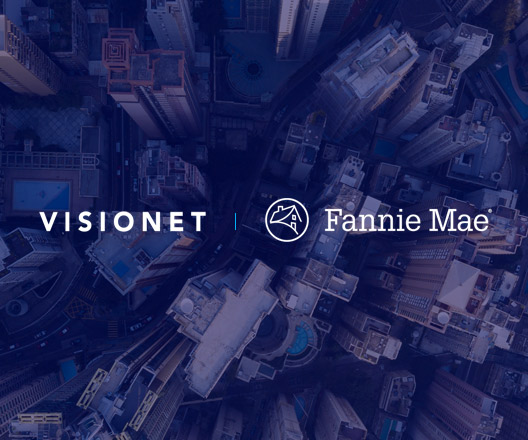
Data teams are under pressure to wrangle ever-growing data volumes, but too often they’re stuck writing repetitive code and wrestling with queries instead of driving insights. In fact, a recent survey found only 23% of organizations have a consistent data management strategy, and 75% of business leaders don’t trust their data. Microsoft Fabric, an end-to-end analytics platform, is changing that by unifying all data services in one place. And now, with Copilot embedded throughout Fabric, engineers can speak naturally and let AI build pipelines, suggest SQL, and even troubleshoot issues.
Automated data engineering workflows
Traditionally, data engineers spend far too much time on boilerplate tasks. Copilot changes that. It lets you:
- Use natural language to build pipelines. Just describe what you want, and Copilot generates the Data Factory or Data Engineering pipeline for you. It handles connecting sources, defining transformations, and even writing Spark or SQL code.
- Auto-generate dataflows and orchestrations. Copilot can build Data Factory dataflows on the fly and set up dependencies.
- Optimize queries automatically. Feed Copilot an existing SQL query and ask it to explain or improve it. It will spot inefficiencies, suggest indexes or rewrites, and even highlight potential errors before they bite you.
- Document your code for you. Copilot can insert comments and documentation based on your code or prompts. Instead of manually writing docstrings or commenting on dozens of SQL clauses, AI will do it on the fly.
Fast, intelligent pipeline creation
One area where Copilot shines is whipping up pipelines at lightning speed. Instead of assembling dozens of notebook cells or pipeline activities by hand, you can prompt Copilot and watch it work. For example, you might say:
“Ingest customer transactions from Azure Blob, join with customer master, filter last 30 days, aggregate by region, and load into Lakehouse.”
Copilot will then:
- Set up the ingestion logic (connections, schemas).
- Write any intermediate Spark or SQL code needed (e.g. the join and filter).
- Define the pipeline orchestration (scheduling, dependencies).
In practice, this can slash development time dramatically. Engineers can simply review and tweak the generated pipeline rather than code from scratch. The result: data products ship faster.
AI-driven SQL Optimization
SQL is another sweet spot. Copilot in Fabric can act as an on-the-job SQL coach:
- Natural-language queries. You can type a question or requirement, and Copilot will translate it into SQL. This lowers the bar for team members who aren’t SQL whizzes.
- Query analysis and fixes. Feed Copilot a complex query and ask it to explain or improve it. Copilot will analyze the query plan, point out inefficiencies, and even suggest indexes or syntax changes to speed it up.
- Inline assistance. As you write SQL in the notebook or Fabric SQL editor, Copilot offers autocompletion and suggestions.
Copilot in notebooks: Code smarter
If you work in notebooks, Fabric’s Copilot supercharges that too. Inside a Fabric notebook you can:
- Generate code snippets from prompts. Ask Copilot to write Python or PySpark code and it spits out runnable code with step-by-step explanations.
- Inline suggestions and auto-complete. As you type code, Copilot offers helpful completions. It also highlights errors before you run the cell.
- Explain and improve code. Point to a block of code and ask your query. Copilot will describe the logic and propose alternatives.
- Build pipelines or EDA flows. Beyond tiny snippets, Copilot can outline entire data-analysis workflows.
Why it matters
In the end, Copilot in Fabric delivers real value:
- Speed: Engineers and analysts iterate far faster.
- Simplicity: Complex data ops get distilled into a conversation. You’re commanding the platform in everyday language.
- Quality: Pipelines and queries generated with Copilot tend to follow best practices. The AI embeds optimizations it learned from countless examples. That means high-performance data flows that run reliably.
- Collaboration: Non-engineers can join in. Business analysts or data scientists can 'talk to data' directly, leaving the grunt work to Copilot. This breaks down silos and makes your data culture more inclusive.
The next generation of data engineering
With Copilot built right into Fabric, every data engineer has an AI ally. Routine tasks vanish, leaving engineers to tackle bigger challenges. Pipelines that once took days are sketched out in minutes; buggy SQL gets debugged by AI before it even runs. This is the future of data engineering: intuitive, fast, and human-centric.
For CIOs and tech leaders, this means delivering analytics projects at market pace. For data engineers, it means spending their time on innovation, not on repetitive work. And for businesses, it means turning data into value faster and more reliably than ever.
Visionet is ready to guide you on this journey. As a Microsoft Fabric Featured Partner, we combine Fabric’s cutting-edge platform with our engineering expertise. If you're exploring how Microsoft Fabric and Copilot can accelerate your data engineering efforts, let’s talk.




